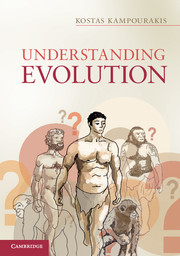Book contents
3 - Conceptual obstacles to understanding evolution
Published online by Cambridge University Press: 05 June 2014
Summary
In the previous chapter I argued that religious resistance to evolution is only part of the problem of its low public acceptance. I also argued that intuitions about purpose and design in nature may stem from our knowledge of artifacts, and not (exclusively at least) from our religious beliefs and worldviews. Remember that in two studies 8–10-year-old children generally preferred Creationist explanations, independently of the religiosity of their families. So there must be something more in play than religious instinct. Thagard and Findlay (2010) have suggested that there are two major types of obstacles to accepting evolution: cognitive obstacles and emotional obstacles. Religion is certainly related to emotional obstacles and there is no question that these are important. However, this book focuses on conceptual difficulties and obstacles to understanding evolution. I must note that I do not underestimate the importance of emotional obstacles; however, I think that the importance of conceptual obstacles has been underestimated so far in the public debates about evolution. Psychologists write about cognitive biases that give rise to intuitions/preconceptions and eventually to misconceptions. In this book I will be using a rather different terminology which I find more comprehensive to non-psychologists. Thus I will explain how intuitions – a term referring to what comes spontaneously to mind or to how we intuitively tend to think – give rise to preconceptions about the natural world, which in turn can change to misconceptions when new knowledge is inappropriately added.
- Type
- Chapter
- Information
- Understanding Evolution , pp. 62 - 97Publisher: Cambridge University PressPrint publication year: 2014



